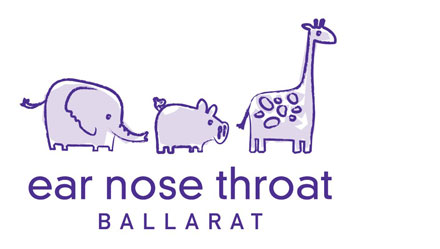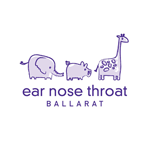Ear, Nose and Throat Specialist Surgeon
Benjamin Wei is a visiting Ear, Nose and Throat Specialist Surgeon from Melbourne with a subspecialty interest in ear related conditions, including cochlear and Baha implants. It gives him great pleasure to provide this service to the community of Ballarat and regional areas saving patients additional trips to Melbourne for assessments and consultation. Benjamin Wei is passionate in providing the best individual care to his patients, and he also strives to provide the best surgical care. He sees both adults and children with ear, nose and throat conditions.
Benjamin Wei’s years of training and clinical experience allow him to constantly utilise his advance surgical skills and employ current evidence based medicine to personalise optimal treatment for his patients.
In addition to visiting Ballarat on a weekly basis, he is also based at The Royal Victorian Eye and Ear Hospital and St Vincent’s Private Hospital in Melbourne and has an academic translational surgical research position at the University of Melbourne and the Bionics Institute.
Benjamin Wei first completed his undergraduate medical degree at the University of Melbourne. He finished ear, nose and throat surgical training in Victoria and was awarded a fellowship in otolaryngology, head and neck surgery by the Royal Australasian College of Surgeons. He further achieved advanced surgical techniques in lateral skull-based surgery, otological surgery, including complex advanced ear surgery and cochlear implantation surgery at the University of North Carolina, Chapel Hill in the United States of America.
Benjamin Wei chose to become an ear, nose and throat specialist with a further interest in advanced ear surgery, largely due to his father’s experience, and his own personal experience, as a patient with ear, nose and throat problems.
Benjamin Wei’s father suffered from chronic ear problems, with recurrent ear infections with a tympanic membrane perforation when he was a child. He saw how his surgery transformed his life and this inspired him in the pursuit of further clinical training in advance ear surgery. Furthermore, when Benjamin Wei was a teenager, he suffered from recurrent tonsillitis. This impacted on his general well being and schoolwork. After completing his high school certificate in Brisbane, an ENT surgeon removed his tonsils and this transformed his health, meaning he never got tonsillitis again and he was able to complete his medical and surgical training without getting sick. Benjamin Wei is grateful for this.
Benjamin’s passion for advancing medical technology, to facilitate optimal care for his patients led him to complete a PhD at the Bionics Institute during his fellowship training. He was mentored by Professor Graeme Clark, who is a pioneer of the multi-channel cochlear implant.
Benjamin’s research on pneumococcal meningitis post cochlear implantation, risk assessment and prevention strategies, earned him multiple awards. These include the Association for Research in Otolaryngology, the American Academy of Otolaryngology Head and Neck Surgical Research Prize and the 2008 Victorian Premier’s award for Health and Medical Research. Benjamin Wei was very grateful to be the first, and only, Australian Ear, Nose and Throat Surgeon to win these prestigious local and international awards and have many of his research papers published in National and International journals. Benjamin was also given the opportunity to be an invited guest lecturer at Harvard, Johns Hopkins, New York, Stanford and Iowa Universities in the United States of America.
Benjamin is committed to provide the best care to his patients using the skills and the clinical experience he has acquired over the years and continue to develop.
- Chronic ear problems, including chronic ear infections.
- Patients with hearing problems, which may be suitable for hearing restoration surgery, including cochlear implantation, ossicular chain reconstruction or stapedectomy.
- Patient with chronic nasal conditions, including infections
- Patients with adenotonsillar problems, requiring adenotonsillectomy surgery
- Patients with throat complaints
Professional Qualifications
- Bachelor of Medicine and Bachelor of Surgery, University of Melbourne.
- Doctor of Philosophy in Otolaryngology, University of Melbourne.
- FRACS – Otolaryngology Head and Neck Surgery. Royal Australasia College of Surgeons
- Diploma of Advanced Skull Base Surgery and Neurotology. University of North Carolina USA.
Current appointements
- Fellow of Royal Australasian College of Surgeons in Otolaryngology and Head and Neck surgery
- Consultant ENT surgeon at the Royal Victorian Eye and Ear Hospital and the Ballarat Based hospital
- The Garnett Passe and Rodney Williams Memorial Foundation Scholar
- Honorary Fellow – the Bionic Institute
- Honorary Fellow -The Department of Otolaryngology. The University of Melbourne
Honours and Awards
- 2022 Clinical research grant (Passe and William Foundation) for double-blinded randomized control trial study on intratympanic dexamethasone injection in the treatment of Sudden Sensorineural Hearing Loss.
- 2011 The Hugh Johnston Travel Grant for US Fellowship (Royal Australasian College of Surgeons )
- 2008 Premier’s Award for Health & Medical Research (Recognition for the outstanding contribution made to Medical Research) “Pneumococcal meningitis post cochlear implantation: risk assessment and prevention”
- 2008 Top 100 most influential people in the state of Victoria (Newspaper Age – Melbourne Magazine)
- 2008 Finalist – Sir Edward Hughes Memorial Research prize in surgery (oral presentation)
- 2006 American Academy of Otolaryngology-Head and Neck Surgery Foundation and Association for Research in Otolaryngology (AAO-HNSF/ARO) Research Award “Pneumococcal Meningitis Post cochlear Implantation”
- 2006 Poster Prize at Frontiers in Otorhinolaryngology 2006.
- Melbourne Abroad Travelling Scholarships (MATS) 2006.
- The Garnett Passe and Rodney Williams Memorial Foundation Scholarship in Otolaryngology Head and Neck Surgery 2004-2006.
- The Wagstaff Fellowship, Royal Victorian Eye & Ear Hospital; NIH-NIDCD-N01-DC-3-1005; the Bionic Ear Institute; and the Department of Otolaryngology, University of Melbourne; the Australian National Health and Medical Research Council





